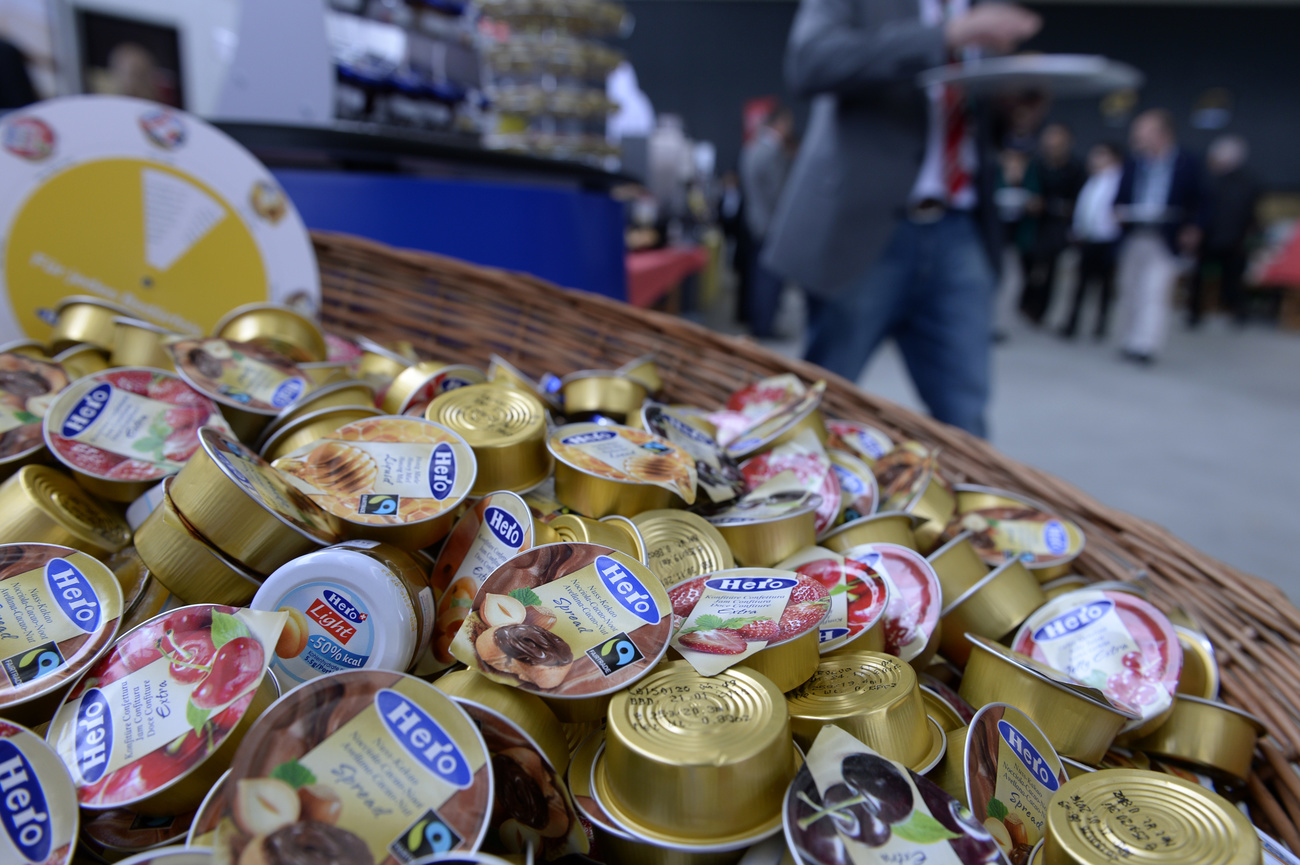
Strong Swiss franc forces Hero jam production to Spain

Another prominent symbol of Swiss food production is moving abroad. Having laid off a large proportion of its Swiss-based workforce last year, confectionary company Hero has announced a new production facility in Spain.
Hero follows a trail already blazed by the likes of Toblerone, which now manufactures in Slovakia, and candy maker Sugus, which has moved some operations to China.
+ Get the most important news from Switzerland in your inbox
Only Hero’s head office will remain in Switzerland once the popular jam-maker closes its Lenzburg factory at the end of the year.
“When it comes to supplying hotels, restaurants or hospitals, price is the most important factor. In addition, around half of the volume of what is produced in Switzerland is intended for European markets, such as Spain or Italy,” Hero Switzerland director, Frederic Haas, told Swiss public broadcaster RTS.
+ Toblerone no longer exclusively made in Switzerland
“With an increasingly strong Swiss franc, these products, which are already very price-sensitive, are becoming even more expensive,”
After Toblerone chocolate, made in Slovakia since 2023, and Lindt, it is Hero’s turn to leave. Can the Swiss food industry compete with foreign countries? Karolla Krell Zbinden, representative of the Federation of Swiss Food Industries, believes the Swiss culinary heritage still has a bright future ahead of it.
+ Will Swiss industrial production leak abroad?
Sensitive subject
Dominique Turpin, professor emeritus at IMD and a brand specialist, is of the same opinion. “Swiss brands still have a very strong reputation around the world. The most important thing is to ensure that the manufacturing process remains of high quality and managed by Switzerland,” he said. “This is not a new phenomenon. Apple has always designed in California and manufactured in China. That hasn’t stopped it from selling a lot of iPhones,” he added.
If the brand is strong enough, it can maintain its quality image. The fact that it is produced in a country other than its country of origin is not necessarily a problem, the specialist explains.
But it is true that it is “a more sensitive subject for the Swiss than for the Chinese or the Argentinian. If Hero could add a small Swiss flag behind the brand, that could reassure some consumers.”
Should we fear other departures? “The decisions to leave Switzerland are based on economic considerations, the cost of labour in Switzerland being higher than in Spain or Slovakia. We must continue to innovate and ensure that the consumer is reassured about the quality of the product. Where the product is manufactured then becomes secondary for the consumer,” concludes Dominique Turpin.
Translated from French by DeepL/mga
This news story has been written and carefully fact-checked by an external editorial team. At SWI swissinfo.ch we select the most relevant news for an international audience and use automatic translation tools such as DeepL to translate it into English. Providing you with automatically translated news gives us the time to write more in-depth articles.
If you want to know more about how we work, have a look here, if you want to learn more about how we use technology, click here, and if you have feedback on this news story please write to english@swissinfo.ch.

In compliance with the JTI standards
More: SWI swissinfo.ch certified by the Journalism Trust Initiative


























You can find an overview of ongoing debates with our journalists here . Please join us!
If you want to start a conversation about a topic raised in this article or want to report factual errors, email us at english@swissinfo.ch.